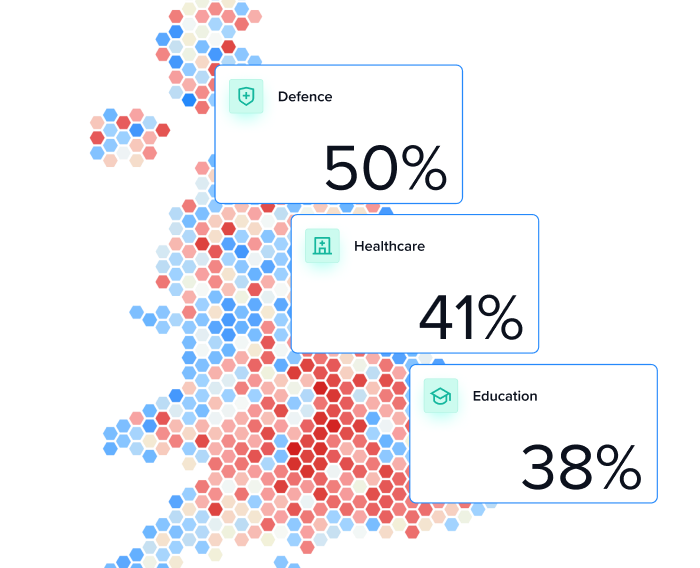Blog/Analysis
How climate change narratives fare in a new era
Back in June, we released Foundations at Risk, a white paper detailing why public and political support for overseas aid has fallen across the Western world. In it, we made the case that climate change and Net Zero could be headed down the same path unless policymakers and advocates acted quickly.
With COP30 underway, we thought now was an opportune time to revisit our findings, draw on some new data, and outline what the climate sector specifically needs to do to rebuild and sustain long-term public support for climate action.
Recapping the playbook
As covered in the white paper, support for overseas aid eroded over decades due to a combination of interrelated factors, and our research suggests these same factors are at play on the climate issue.
First, a deepening distrust in government institutions damaged the aid sector. Voters across the West generally have little faith in their government to deliver anything well, and the aid sector took a hit. Furthermore, the growing scepticism towards ‘benevolent billionaires’ in recent decades also impacted public opinion.
Second, the erosion of shared truths created an environment in which the benefits of aid became less visible, with positive impacts overshadowed by amplified negative narratives.
Third, overseas aid steadily became a more politically-contentious issue and part of an ‘issue bundle’ with a number of other progressive-coded topics, making consensus much harder to achieve. Changes in voter coalitions among major political parties also reduced the incentive for parties to appeal to aid supporters to win elections.
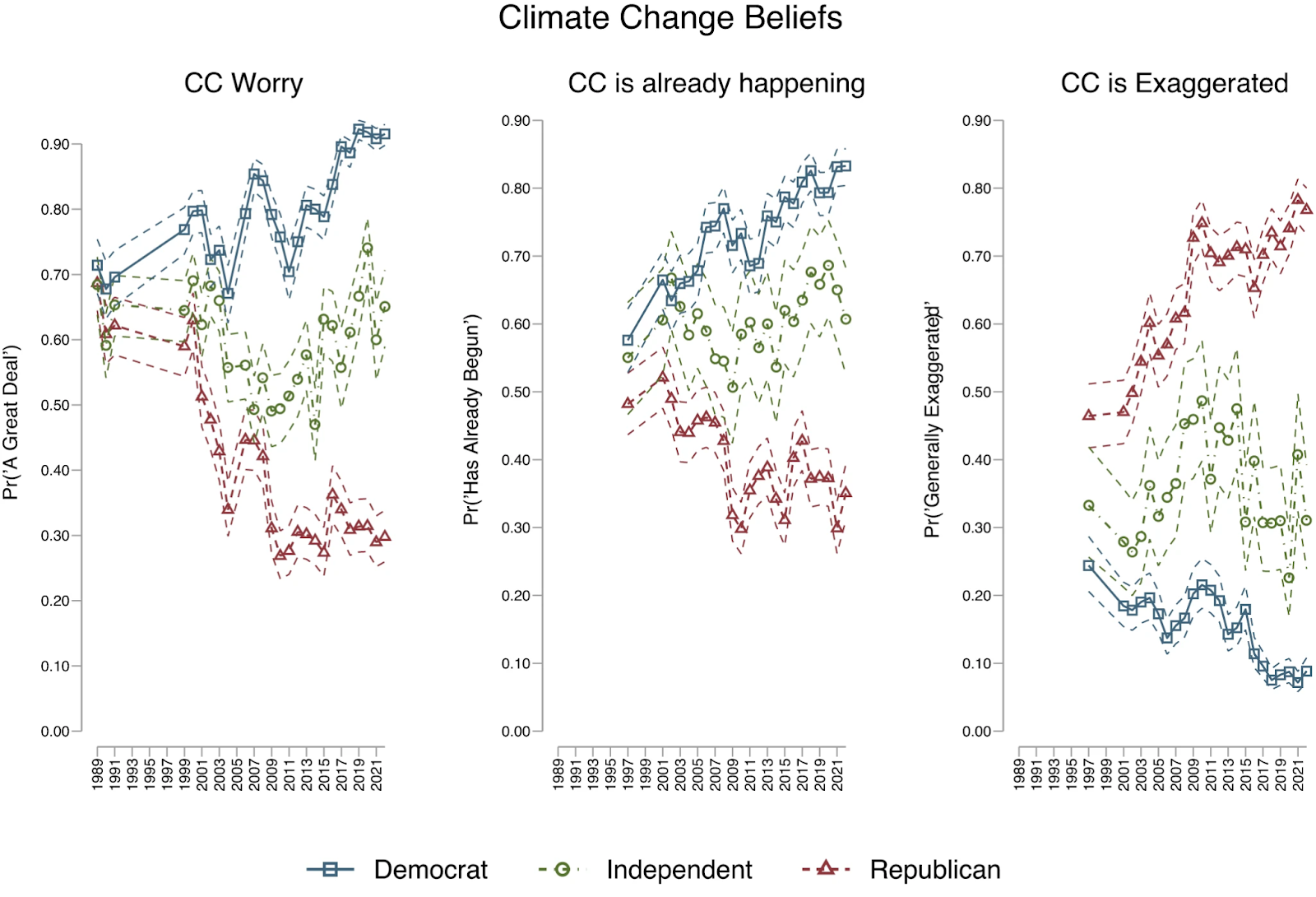
On climate, this factor has already become embedded. Net Zero as a concept is more polarising than nationalism, and almost as polarised as multiculturalism. Among some of the more striking findings from June’s white paper was the following:
“Among all the concepts we asked respondents to score from 0 to 10 [...] the fourth-strongest link was that between Black Lives Matter and Net Zero (correlation coefficient of 0.51), two concepts which on the surface bear little resemblance to one another.”
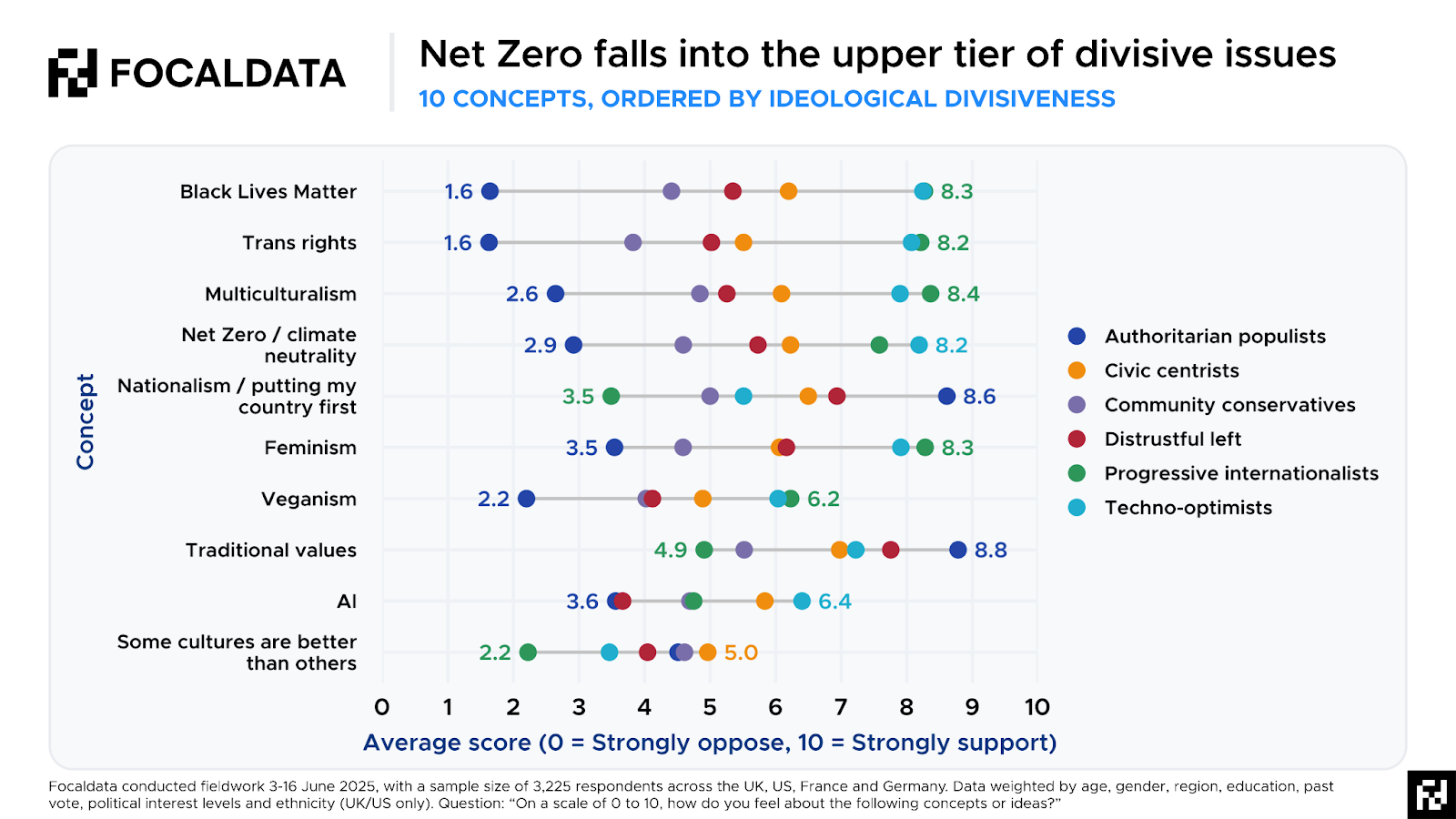
Climate action has seemingly become explicitly left-coded, which is reducing its capacity to withstand changes of government. Being able to depolarise the climate debate will be crucial for the sector going forward, and we’ll cover how that could be done shortly.
Finally, the rise of zero-sum thinking across Western Europe and North America has led to a greater prioritisation among voters on looking after their own country in times of economic crisis, rather than investing in international projects which might provide mutual benefit.
What voters are telling us
Last week, we surveyed 1,500 British adults on attitudes towards climate action. Our findings make clear that the key obstacle the sector needs to address is around costs and affordability. Climate action needs to be directly tied to the money in people’s pockets. Right now, that cut-through is lacking.
Among respondents who felt climate change had become less important in recent years, the top themes identified through text analysis were concerns about costs (19% of responses) and a shift in priorities toward more immediate issues (19%).
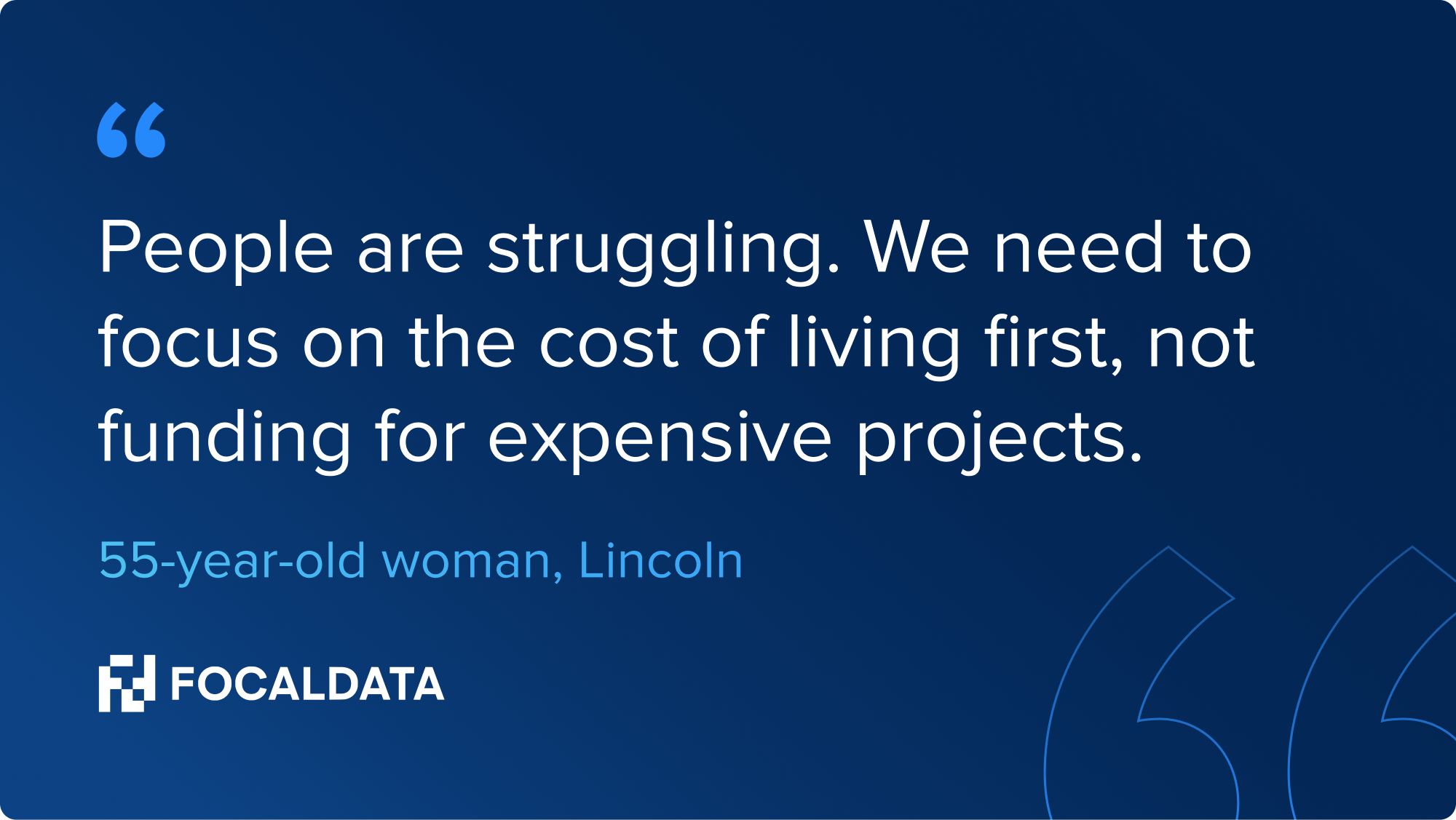
We also asked people which anti-climate-action messages they agreed with. This helps identify the types of voters the movement is losing. A majority (52%) of those who have deprioritised climate change agreed that the UK is ‘wasting time and money trying to reach Net Zero when countries like China and India continue to increase emissions’. Nearly half (46%) agreed that reaching Net Zero ‘would be too expensive when we need to be focused on bringing down the cost of living’.
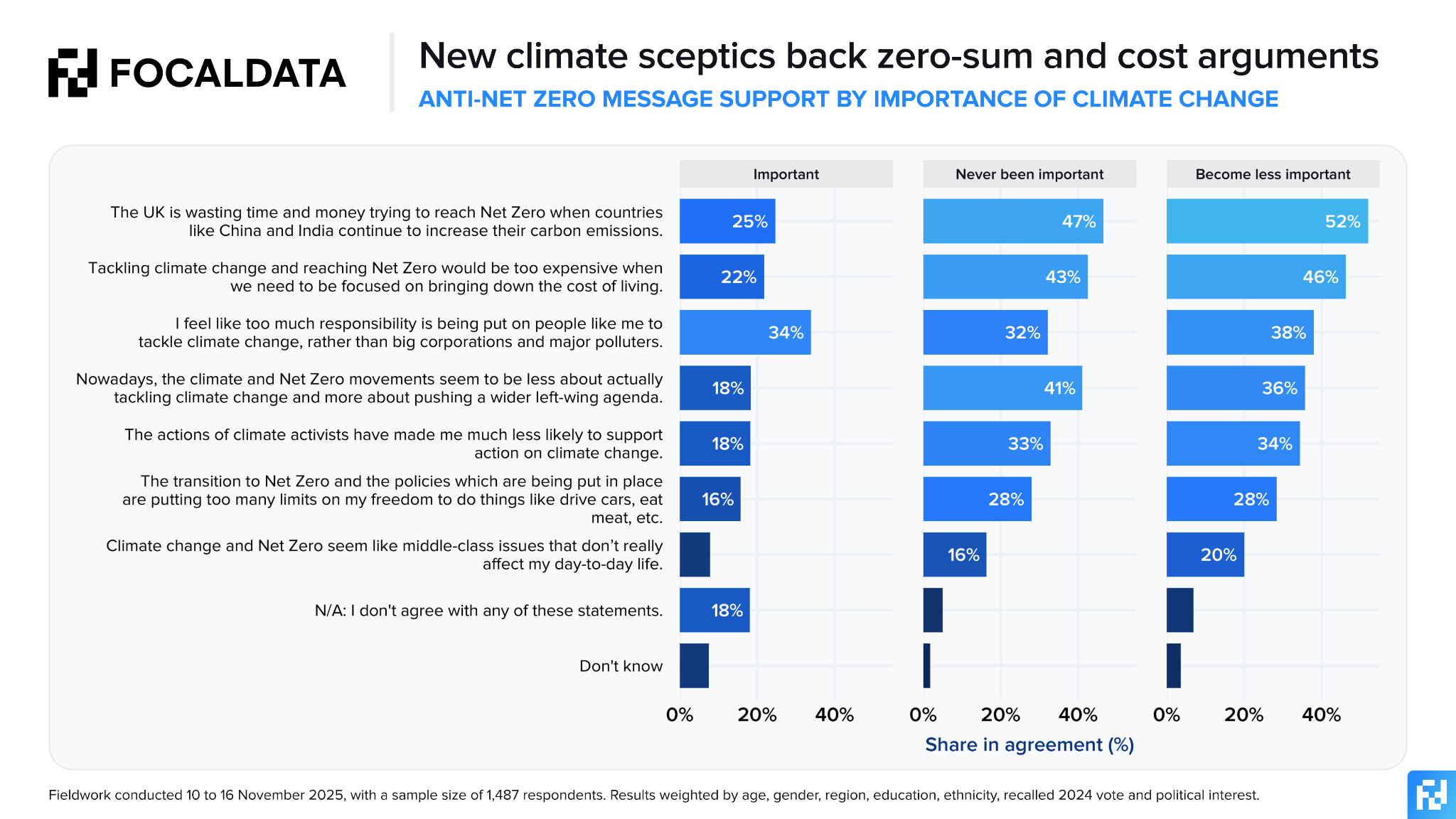
In both cases, agreement was higher among ‘switchers’ than those who were never supportive of climate action to begin with. Zero-sum thinking is clearly shaping public attitudes, and climate action is broadly seen as competing with, rather than contributing to, cost-of-living solutions.
This overall problem is exemplified by looking at how the Green Party fares on issue handling when it comes to climate and energy issues. The party performs strongly when it comes to protecting the environment (30% say they are the party they trust the most) and reducing carbon emissions (23%), but when it comes to the bread-and-butter issues like lowering energy bills and creating jobs in the energy sector, the party cuts through much less (12% in each, ranking third for the former and fourth for the latter). For many voters, climate action and protecting the environment are seen as nice-to-haves, but are not relevant to – or in some cases actively at odds with – tackling the cost of living.
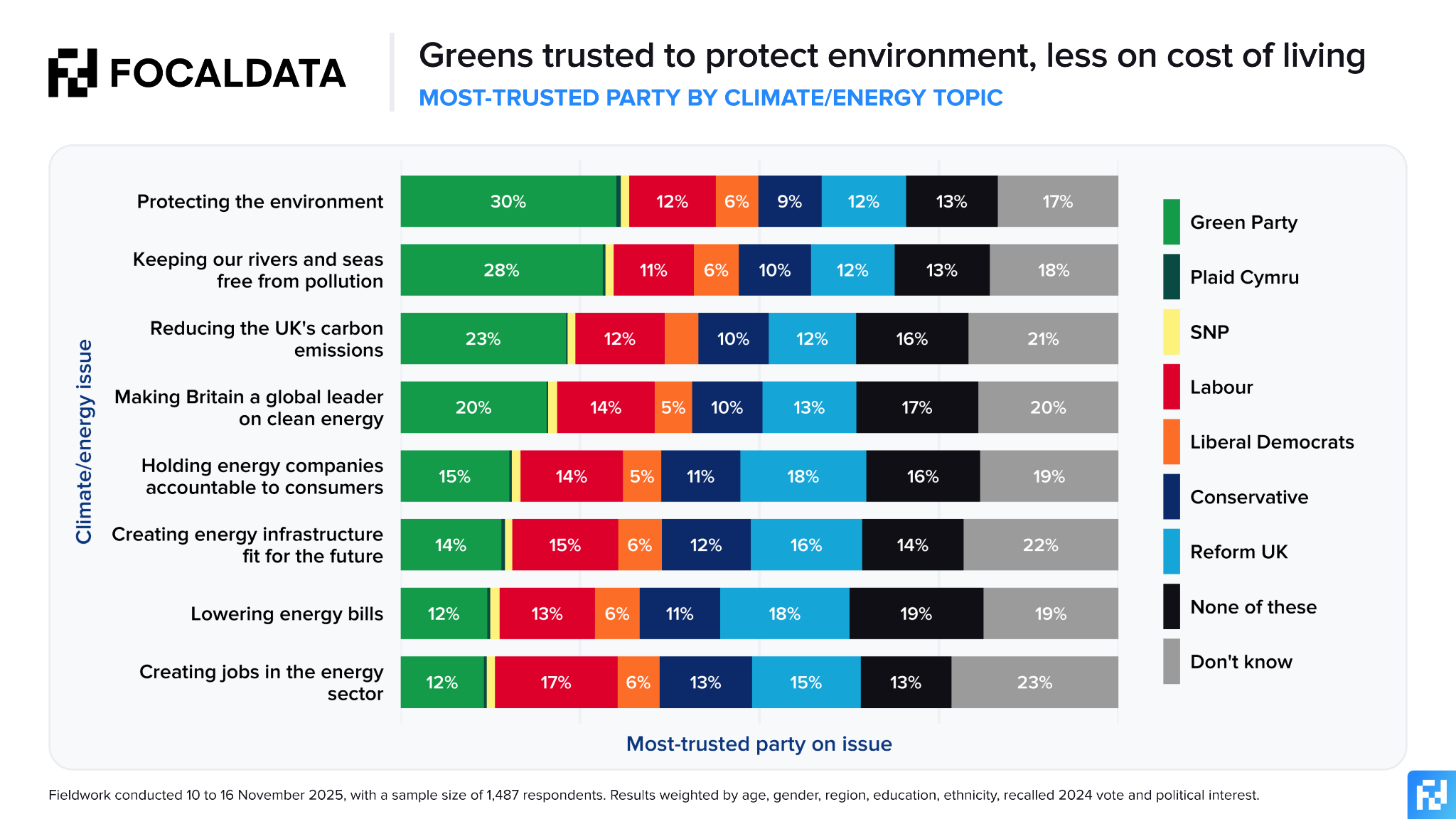
How to fix it
As in our earlier white paper, we constructed a message-testing experiment to see which messages create the biggest uplift in support for climate action. This time we used our new conjoint tool to assess the combined effects of messengers, message focus, tone and framing.
The results were striking. While messages were important, messengers had a much larger impact. This is unusual for message testing on an issue with such high public awareness.

The best-performing messages were centred around localism and cutting bills, confirming once again that connecting the cost of living to climate action is the most important issue that needs tackling:
- “By producing more of our food and energy here at home, we can cut emissions, keep prices stable, and build stronger, more self-reliant communities.”
- “Renewables are now the cheapest source of energy, and the fastest way to cut energy bills for good is to generate more of our own clean power here in Britain instead of paying overseas suppliers.”
Both of these messages have an economic angle, and climate action is seen here as a means through which to improve people’s day-to-day lives, rather than an issue which creates inconvenience and extra costs. During an economic downturn, emphasising the former is imperative.
A regional frame, rather than a national or global one, also has a modest but significant positive effect on message performance. The regional framing we used was ‘This is a challenge for every region of the UK, but also an opportunity to bring new industries, skills, and pride back to the places that built this country’.
On messengers, Sir David Attenborough remains uniquely trusted across the electorate, ranking first in five of the six audience segments we tested. He is essentially unmatched in his ability to deliver climate messages that resonate across political divides. By contrast, activist voices perform worst when it comes to depolarising the issue. They tend to energise supporters while further alienating sceptical groups.
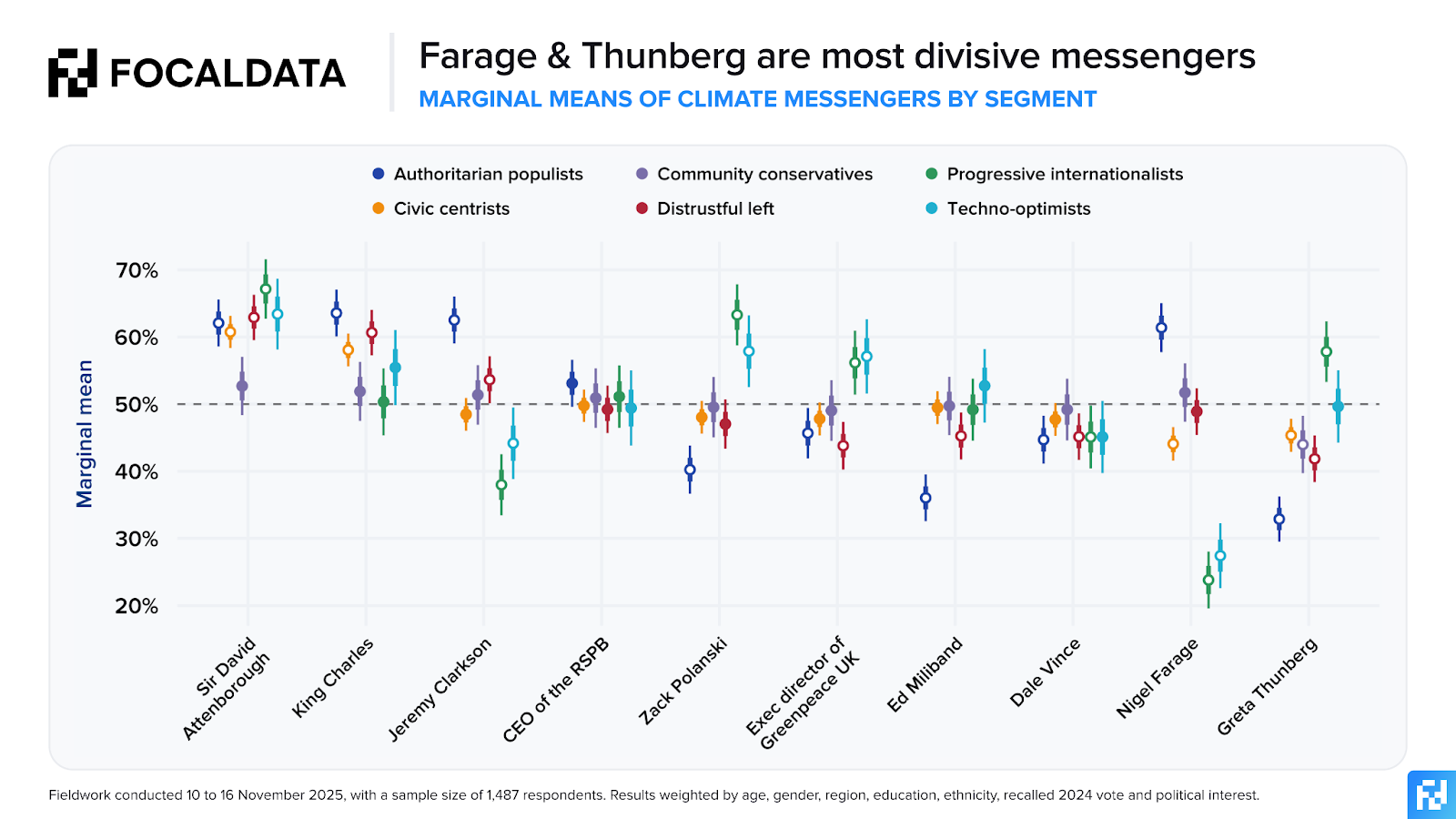
Our segmentation analysis shows that figures like Jeremy Clarkson can be very effective among groups least supportive of Net Zero (Authoritarian Populists, Distrustful Left and Community Conservatives). While Clarkson is not universally popular, he is less polarising than politicians like Nigel Farage, and his strong association with farming, rural identity, and localism gives him credibility when discussing ways to reduce carbon emissions among the most climate-sceptic groups.
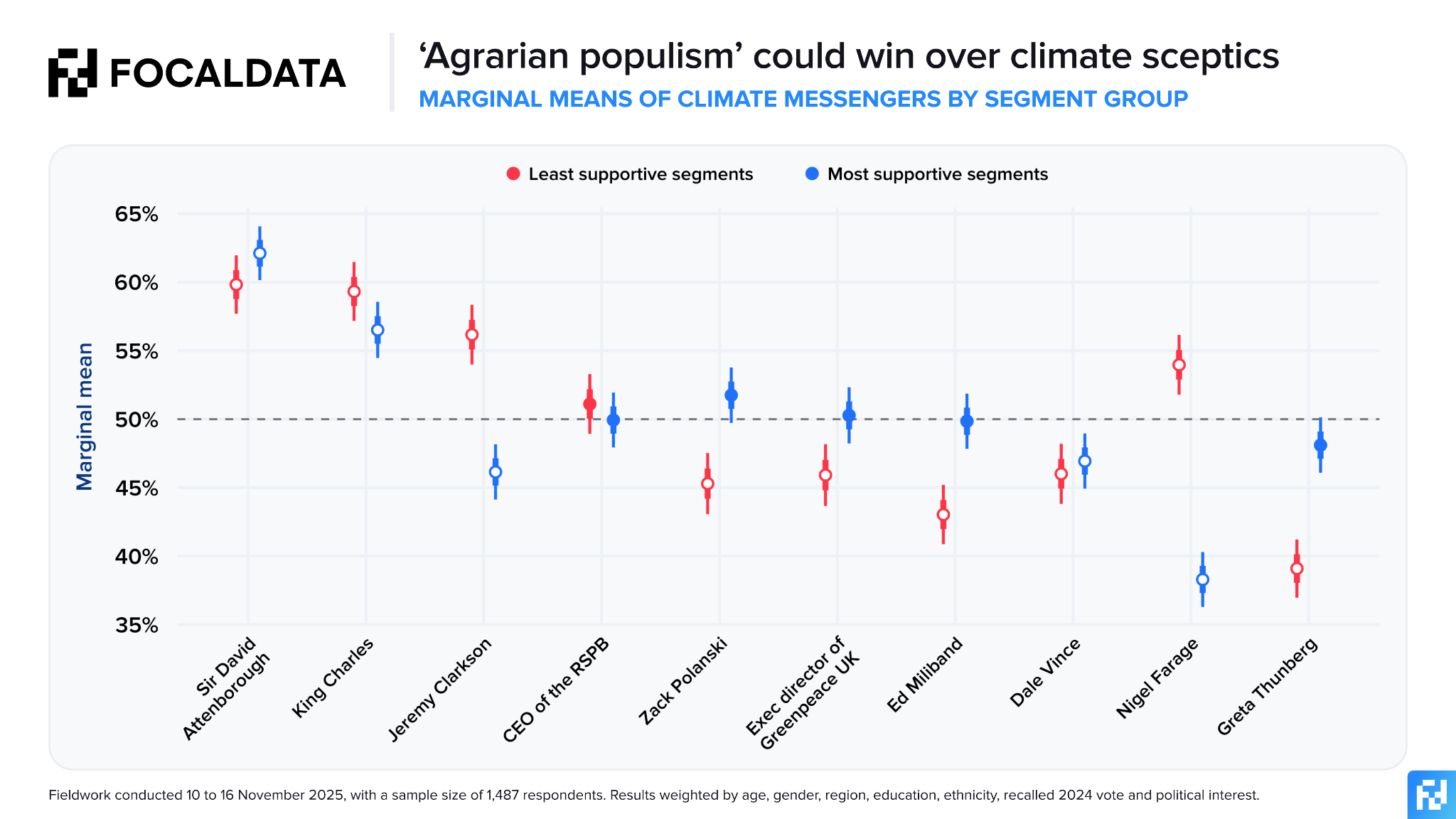
This is not to say that the entire climate sector needs to hire Jeremy Clarkson for their public-facing comms, but rather to highlight a broader strategic opportunity: tapping into ‘agrarian populism’ and support for localist action may help broaden the coalition for reducing emissions indirectly, especially among currently disengaged groups.
Focusing on localism, affordability, and credible everyday messengers is the most promising way to prevent climate action from following the same trajectory as overseas aid. The climate movement should try and move beyond abstract concepts and moral appeals, and instead show that climate action can deliver real economic improvements and practical benefits for ordinary people in the here and now.
If the sector is willing to push into less familiar territory, and to partner with trusted voices outside its traditional base, it can rebuild a broad, resilient foundation of public support for the years ahead.
Data tables for this report can be found here.
